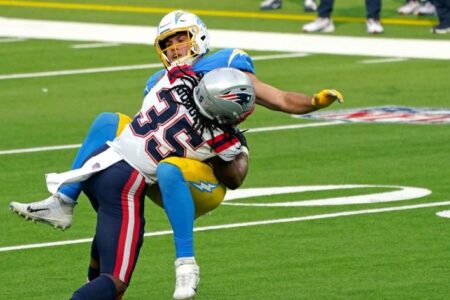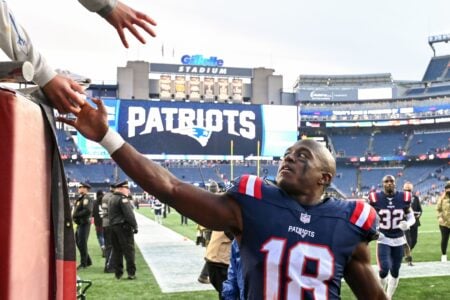- Joined
- Sep 13, 2004
- Messages
- 22,930
- Reaction score
- 1,878
In a subscriber only article in the Boston Globe, it is reported that two economists from the Wharton School of economics have spent years analyzing the NFL draft determining if first-round picks are worth it. They concluded that 2nd round draft picks are on average 15% and up to 25% more valuable dollar for dollar. Their analysis looked at 1000s of players. I suppose intuitively In Belichick We Trust, but it's always good see his practices endorsed in a logical analysis.
Belichick was right! Economics and the NFL Draft - Ideas - The Boston Globe
...
Just days ago, Pats fans waited eagerly on draft night only to watch, deflated, as head coach Bill Belichick traded away the team’s first-round draft pick in exchange for a raft of lesser picks from later rounds. ... Instead, just like they’ve done in past years, the Pats traded down, leaving many fans grousing on talk radio.
...
Belichick’s strategy, however, has a strong endorsement from at least one surprising place: the world of high-level economics. A research paper published in March by two university economists suggests he may be taking exactly the right approach.
...
"Massey and Thaler began by assigning a performance value to players drafted between 1991 and 2001 who remained in the league six to eight years later.... As the paper puts it: “In paying a steep price to trade up, teams are paying a lot to acquire a pick that is worth less than the ones they are giving up.”
Belichick was right! Economics and the NFL Draft - Ideas - The Boston Globe
...
Just days ago, Pats fans waited eagerly on draft night only to watch, deflated, as head coach Bill Belichick traded away the team’s first-round draft pick in exchange for a raft of lesser picks from later rounds. ... Instead, just like they’ve done in past years, the Pats traded down, leaving many fans grousing on talk radio.
...
Belichick’s strategy, however, has a strong endorsement from at least one surprising place: the world of high-level economics. A research paper published in March by two university economists suggests he may be taking exactly the right approach.
...
"Massey and Thaler began by assigning a performance value to players drafted between 1991 and 2001 who remained in the league six to eight years later.... As the paper puts it: “In paying a steep price to trade up, teams are paying a lot to acquire a pick that is worth less than the ones they are giving up.”


















